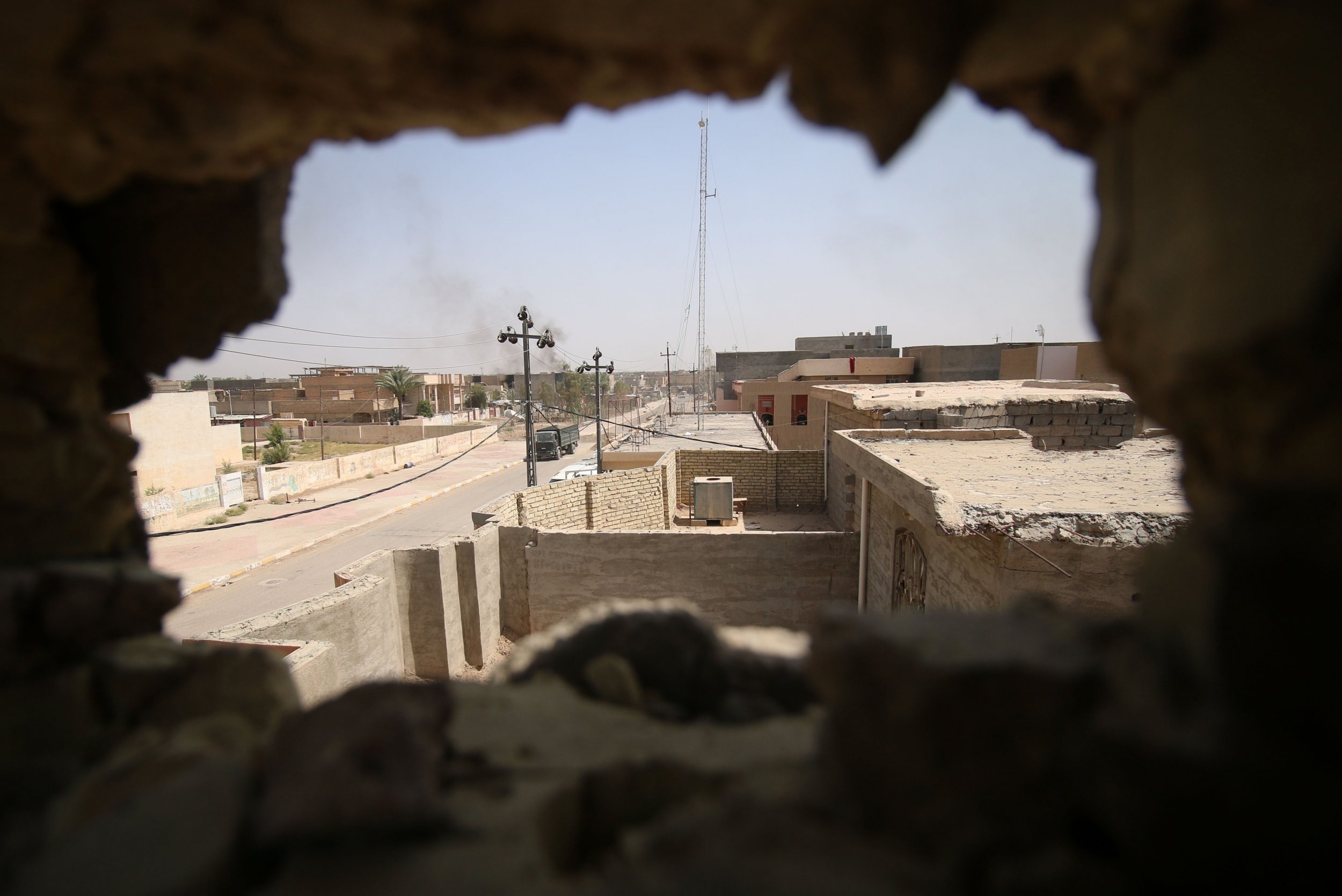
Iraq's national flag flies once again over Fallujah. The country's security forces recaptured the entire western city from the Islamic State militant group (ISIS) on Sunday, forcing the militants making their last stand in small pockets.
In just over a year, Iraqi forces have captured three major cities—Anbar, Ramadi, and now Fallujah—from the radical Islamist group.
All three of these successes would not have been possible without the vital assistance of the U.S.-led coalition battling ISIS in both Iraq and Syria, and the coalition will be pivotal in the battles on the horizon. So where is the next focus for the coalition?
Stabilizing Fallujah
The coalition must firstly help to ensure the stability of Fallujah so that it could not be retaken by ISIS, drawing all parties back in to Anbar again. While the Iraqis should be able to handle matters from here, Baghdad will also have to embark on a large-scale reconstruction effort to allow thousands of civilians to return to their homes from the desert camps outside the city.
Therefore, the coalition may still have to provide tactical support, and maybe even air support if ISIS launch a significant counter-attack after their loss of another key city in the self-proclaimed caliphate, one that it had held since January 2014. The group still provides a deadly threat to ground troops with its booby traps, ambushes, bomb blasts and vehicular suicide missions.
The Manbij Pocket
The U.S.-led coalition is supporting the Syrian Democratic Forces (SDF), a coalition of Syrian Arab and Kurdish forces, battling ISIS in their city of Manbij in the country's east. The forces have entered the city after earlier encircling it. With coalition air power and 200 U.S. special forces advisors on their side, this looks like the next area to potentially fall back into coalition allied hands. Success here could see the coalition and this ground coalition move on to the biggest target in Syria for all parties involved.
Raqqa
A much tougher proposition than Fallujah or Manbij, Raqqa is the epicenter of the ISIS-held territory. It was one of the first cities the group captured, falling in January 2014. It became a symbol of the group, with ISIS military parades through the city center and propaganda videos, including brutal hostage killings, emanating from here.
Coalition powers have pounded the city since September 2014, causing many ISIS fighters to flee, but it remains in the group's hands. No enemy ground troops have entered the city since the group captured it but the Syrian regime's troops have progressed to Raqqa province.
It may only be a matter of time before Assad, backed by Tehran and Moscow, decides to make a move for the city, in which case it may not be left to the coalition and SDF to do the dirty work. Still, as ISIS continues to lose territory in both Syria and Iraq, an offensive to regain the city is looking more and more appealing to both the coalition and the Syria-Russia-Iran axis.
Mosul
The grandest prize in the fight against ISIS. ISIS leader Abu Bakr al-Baghdadi is believed to be hiding in areas close to the city, it is where he delivered his first sermon as the group's self-anointed "caliph" and it is the group's largest possession with a population of more than one million, making it Iraq's second-largest city. The group overran the predominantly Sunni city with ease, with many of Baghdad's security forces in Mosul fleeing their posts in June 2014.
Iraqi Prime Minister Haider al-Abadi, on a visit to Fallujah on Sunday, pledged to raise the Iraqi flag in Mosul soon. He had earlier pledged to recapture the city by the end of 2016, but U.S. officials have said that, because of the offensives on Fallujah and Ramadi, the campaign will be a more timely endeavor.
Iraqi forces remain approximately 75 kilometers south of Mosul, stationed in the town of Makhmour. Supported by both Kurdish and U.S. airpower, Iraqi troops started to take back villages in the rural areas around Mosul in March, in what the coalition said was the first phase of a planned liberation of the city. The subsequent phases will see Mosul unlikely captured before the end of the year, with 2017 a more realistic prospect, one in line with U.S. military estimates.
A representative from the U.S.-led coalition was not immediately available for comment.
Uncommon Knowledge
Newsweek is committed to challenging conventional wisdom and finding connections in the search for common ground.
Newsweek is committed to challenging conventional wisdom and finding connections in the search for common ground.
About the writer
Jack is International Security and Terrorism Correspondent for Newsweek.
Email: j.moore@newsweek.com
Encrypted email: jfxm@protonmail.com
Available on Whatsapp, Signal, Wickr, Telegram, Viber.
Twitter: @JFXM
Instagram: Read more
To read how Newsweek uses AI as a newsroom tool, Click here.








